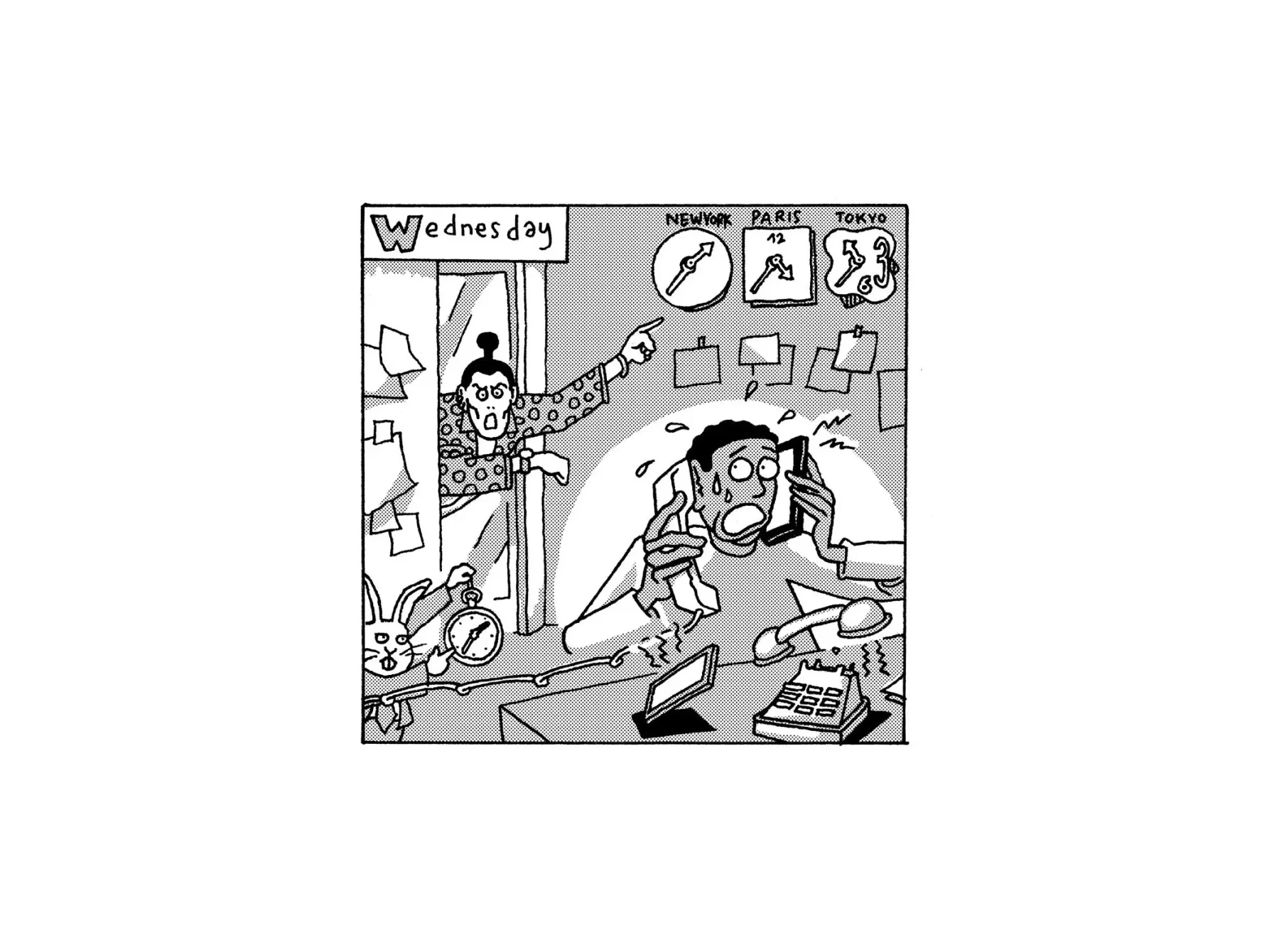
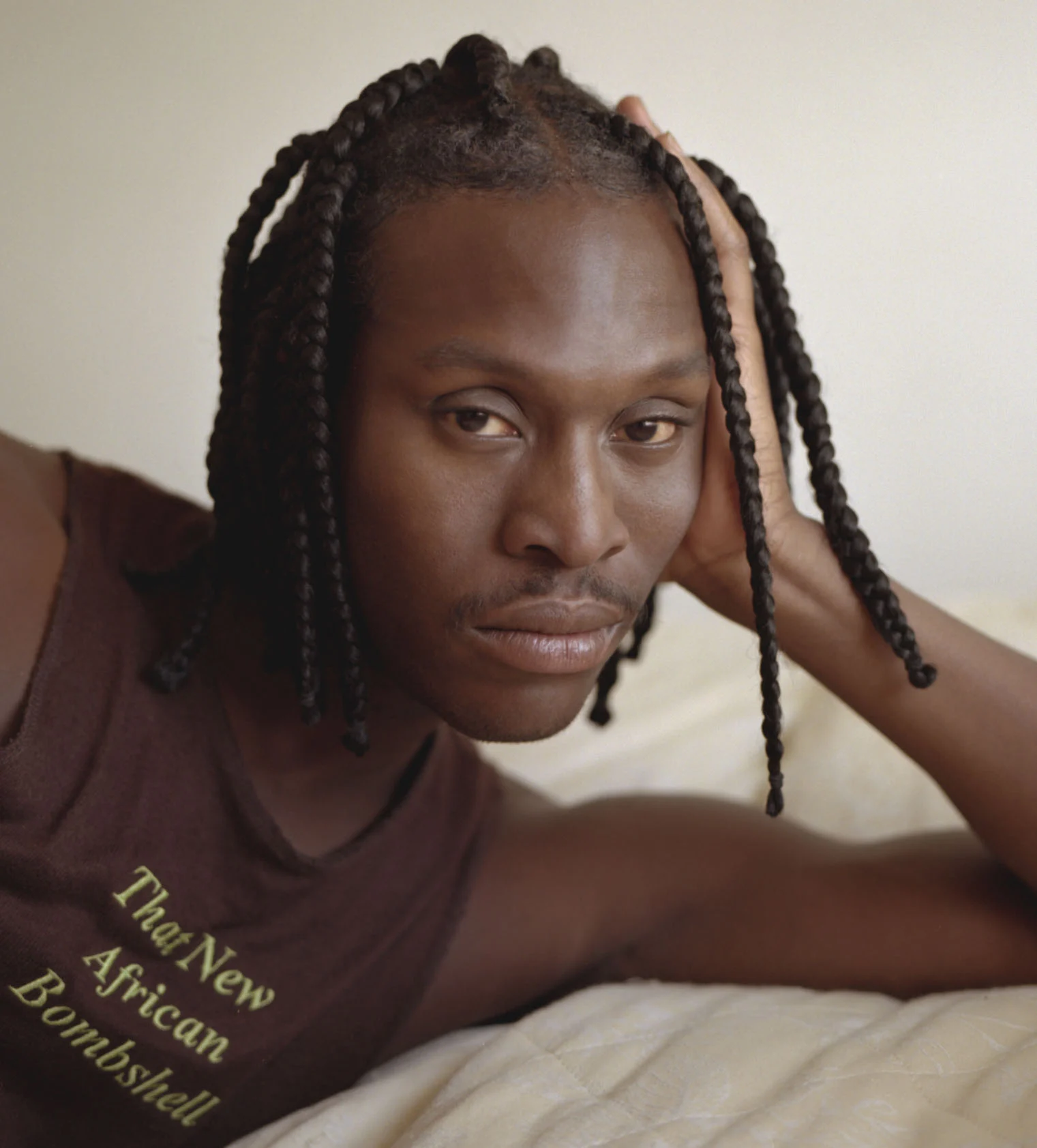
Growing up in Lagos, Otamere Guobadia knew the score. For Black men were to keep their hair tamed and restrained, and cropped austerely short—or else run afoul of school dress codes, office standards, and community norms of masculinity and respectability. But during the great pause of the pandemic, the writer began growing his hair out for the first time, joining a cohort of Black men questioning and resetting their relationship with their own hair. Here, he explores the power of these transformations.
Photography by Christian Cassiel.
Hair is one of our earliest sites of identity and assertions of selfhood. It’s a small garden of the body first tended to by our parents or guardians—one we might later be taught to nurture and tend to ourselves; one by which we learn to define and relate to ourselves and others. The early interactions with our hair, when we are either taught to recognise its intrinsic value or disregard it completely, can have a significant impact on our personal journeys and many aspects of our flourishing. Hair forms a central part of many cultures and identity, but the open embrace and enjoyment of it has not been afforded to all people equally.
In a world shaped by colonialism and empire, Black hair is politicized, ruled unprofessional and undesirable by powerful and prevailing institutions. Black women's hair in particular has been the sustained object of much policing, scrutiny and attack. And yet in spite of this (and perhaps even the corollary of it) a movement to affirm its beauty, value and sanctity has grown and blossomed. Today, Black women's hair and the culture surrounding it are widely praised as sites of artistic and personal expression, and cultural innovation, often scoured by outsiders for inspiration.
But the same insidious and persistent messages to which Black women are subjected have also shaped the relationship Black men have to their hair and self-image, too.
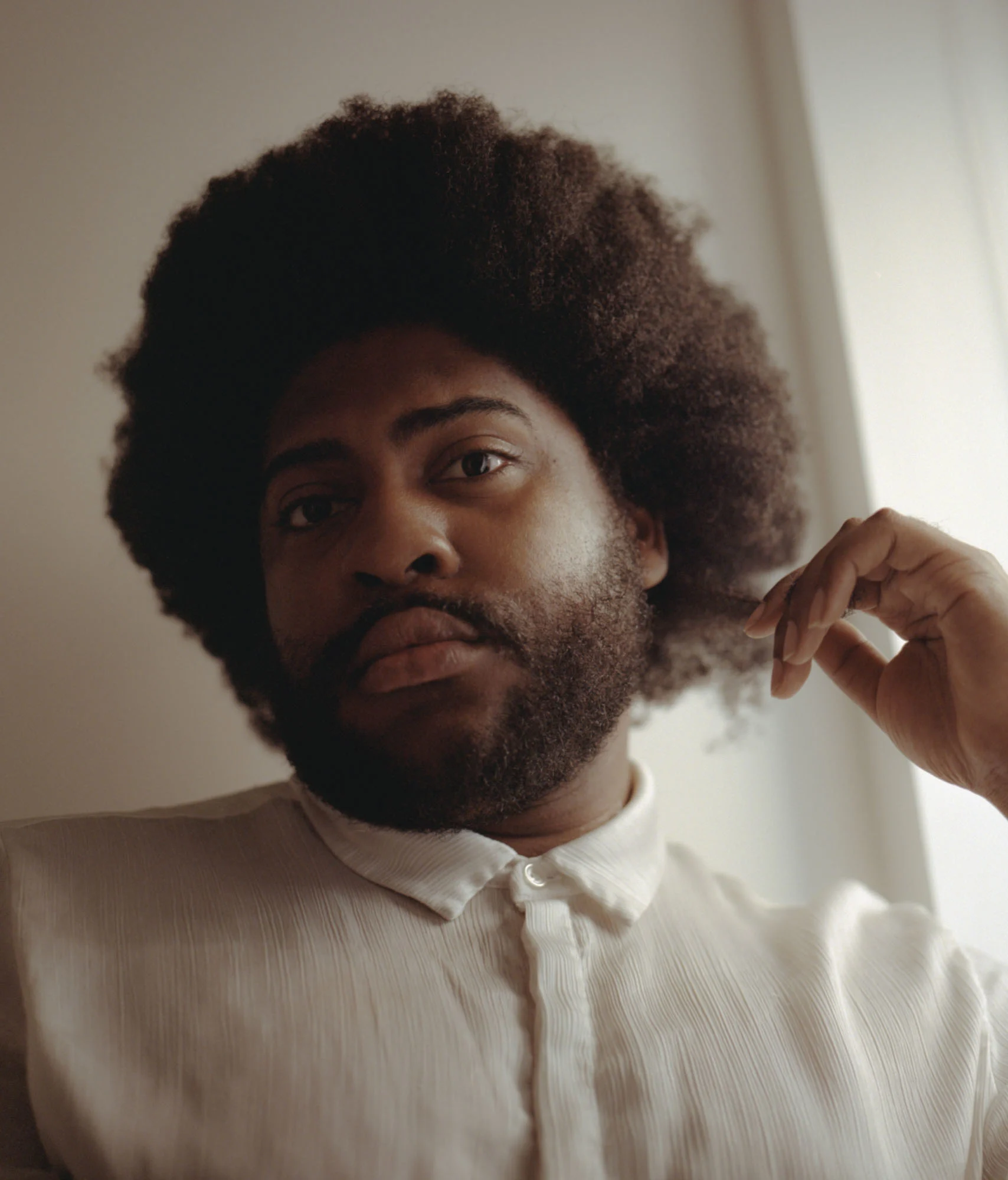
During the late 20th century, Black men's hair held cultural significance. For Black male artists and performers, from Little Richard to Prince and Michael Jacskon, unique, often “unnatural” hairstyles formed an essential part of their iconic looks. It was an era of Black men's hair that saw everything from bouffants to afros to jheri curls come into fashion. These styles, all of course preceded by the coiffed “conk” of the early 20th century—a popular pompadour style for chemically straightened hair, favored by stars like James Brown.
(For all its ubiquity, the conk remains a controversial touchstone. In his 1965 autobiography, Malcom X, described getting a conk as his "first really big step toward self-degradation,” marking the point when he “joined that multitude of Negro men and women in America who are brainwashed into believing that the black people are ‘inferior’ and white people ‘superior’ that they will even violate and mutilate their God-created bodies to try to look ‘pretty’ by white standards.”)

Hair, this first garden of the self, is one Black boys are often taught to prune and minimize, to treat as disorderly.
As attitudes have shifted and perhaps narrowed in the sphere of Black masculinity, the complicated joy of hair has taken a narrower role in our aesthetic expression. There are simply very few conversations happening about Black men's hair in the 21st century. Over the last few decades, the discreet, cropped cut has been adopted and expected en masse. Long hair—particularly wigs and extensions, elaborate braids, and straightened styles that require significant fuss or manipulation—has largely come to be viewed intra-communally as rakish, unduly feminine and unfit for professional life.
This lesson is taught and learned early. In Lagos, both my primary and secondary school dress codes required male pupils to keep their hair shorn short. And so this first garden of the self is one Black boys are often taught to prune and minimize, to treat as disorderly.
“I don't think people realize that as a collective, what that does to a group of people, whether just a Black boys, or just a Black people as a whole,” Isaac says. “And I just don't want any parts of it. I'm going to actually do what I want with the hair that goes out of my head.”
Growing up, I came to accept my hair as something of an obstruction to the kind of man I was supposed to be. I bristled at anything above 0.5mm of growth on my scalp. A life without hair on one's head might seem a small and frivolous deprivation, but it is one with a storm of consequences for how we model and embody our aesthetic and authenticity. It is typical of a world which grinds and polices men into narrow boxes (and Black men into boxes narrower still)—stripping them of the small and tender miracles that bring forth joy, and fostering a stance of austerity towards their own bodies and the bodies of others.
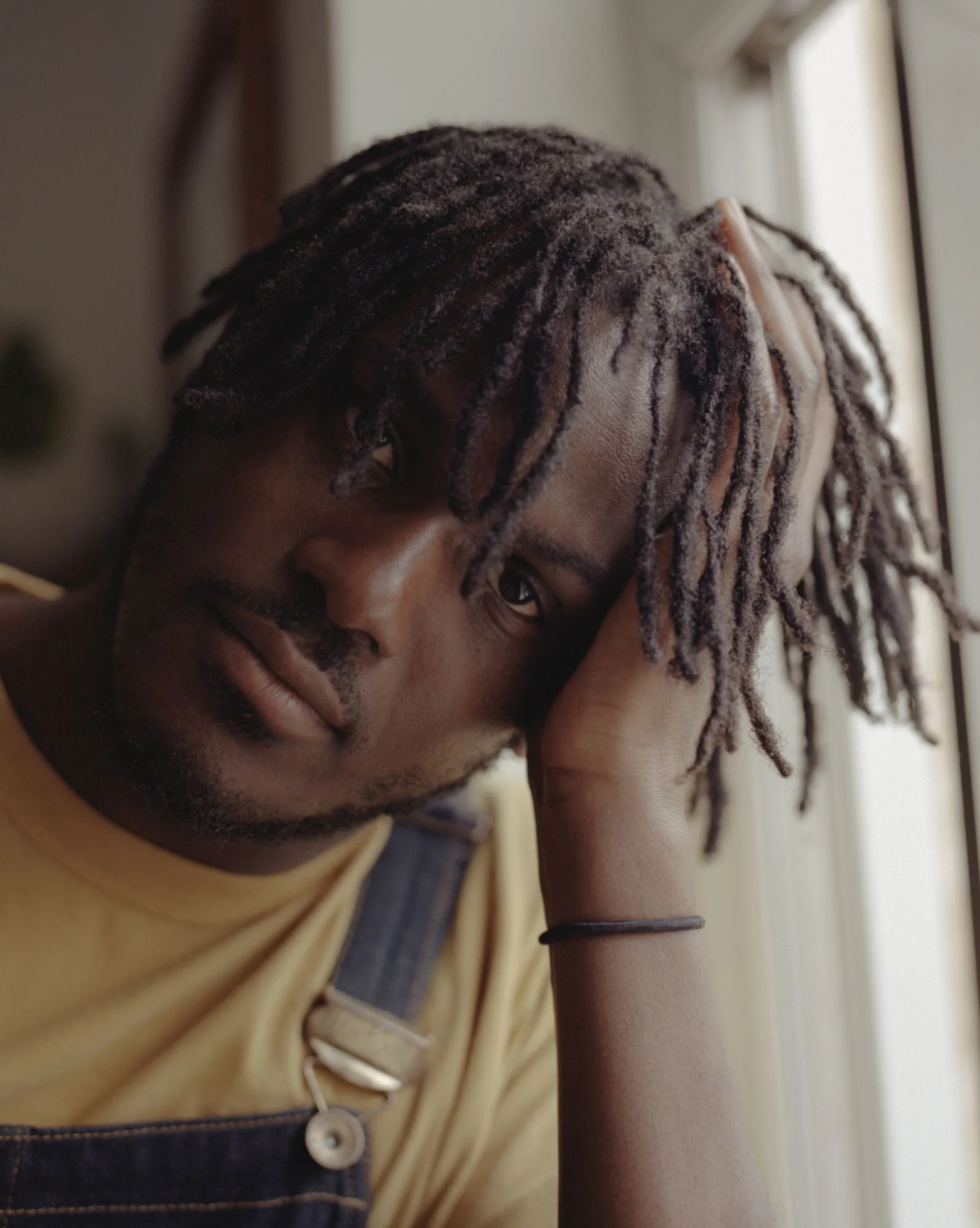
My hair journey has been the reclamation of a prize that, for years, I had no idea I was being denied.
If circumstances had not so radically changed, I likely would have carried on shaving my head every two weeks through my adult years. But I, like many others, have had my long-established patterns interrupted and reconfigured over the last two years. Captured by a YouTube algorithm sidebar saturated with “natural hair journeys” during the great pause of the pandemic, I decided to give growing out my hair a try—and I haven’t looked back.
Phil, a 32-year-old Black man based in south London, also reset his relationship with his hair over lockdown, after a lifetime of conformity. “I turned 30 six days before we went into lockdown, so my whole plan was to cut my hair before my birthday so that everything was fresh,” he recalls. “I hadn't cut my hair since early February, or maybe even the end of January. So then when we went into lockdown, I was like two months behind, and then it grew from that month until July when the salons reopened. At that point, it was like ‘Well, I have hair now!’”
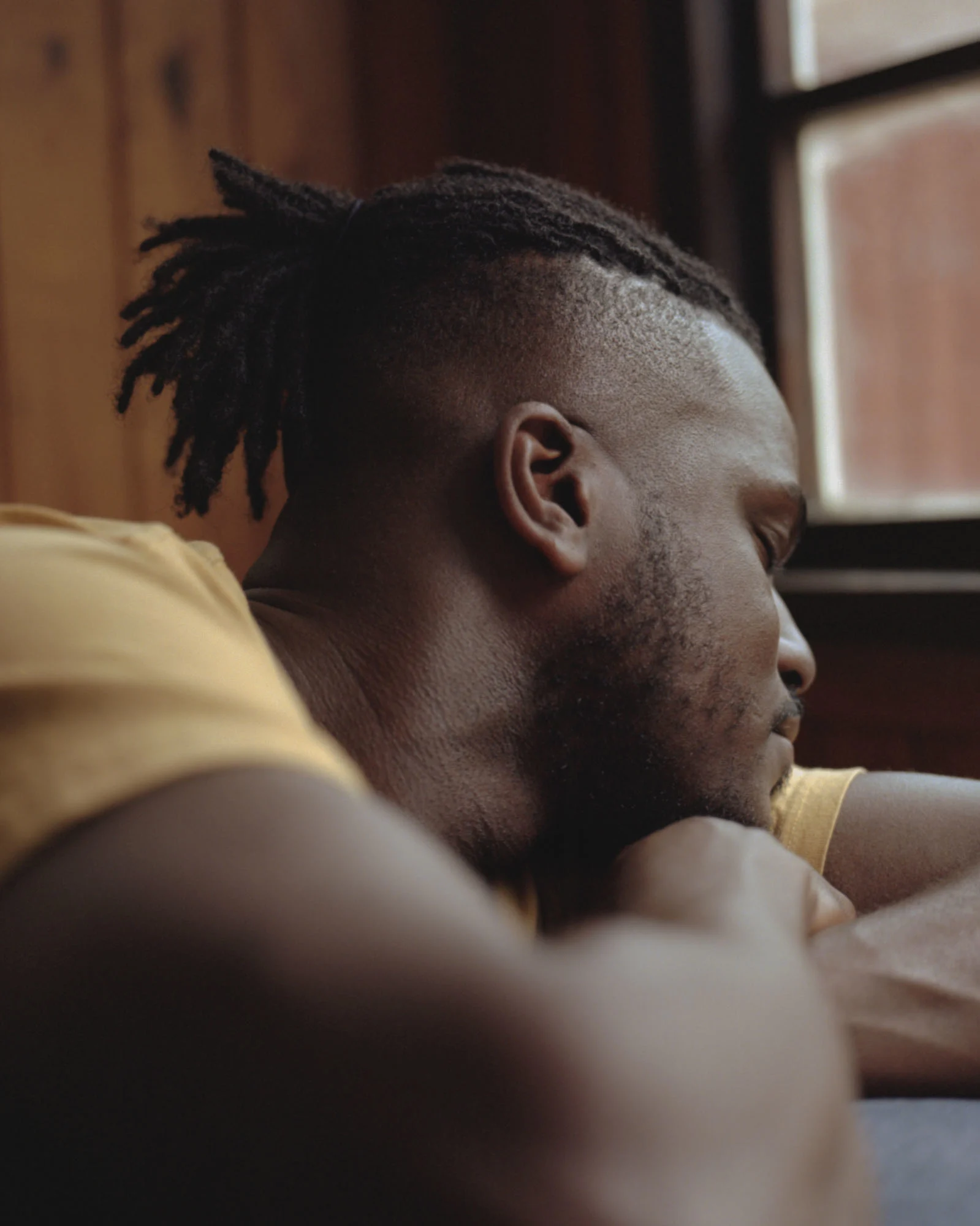
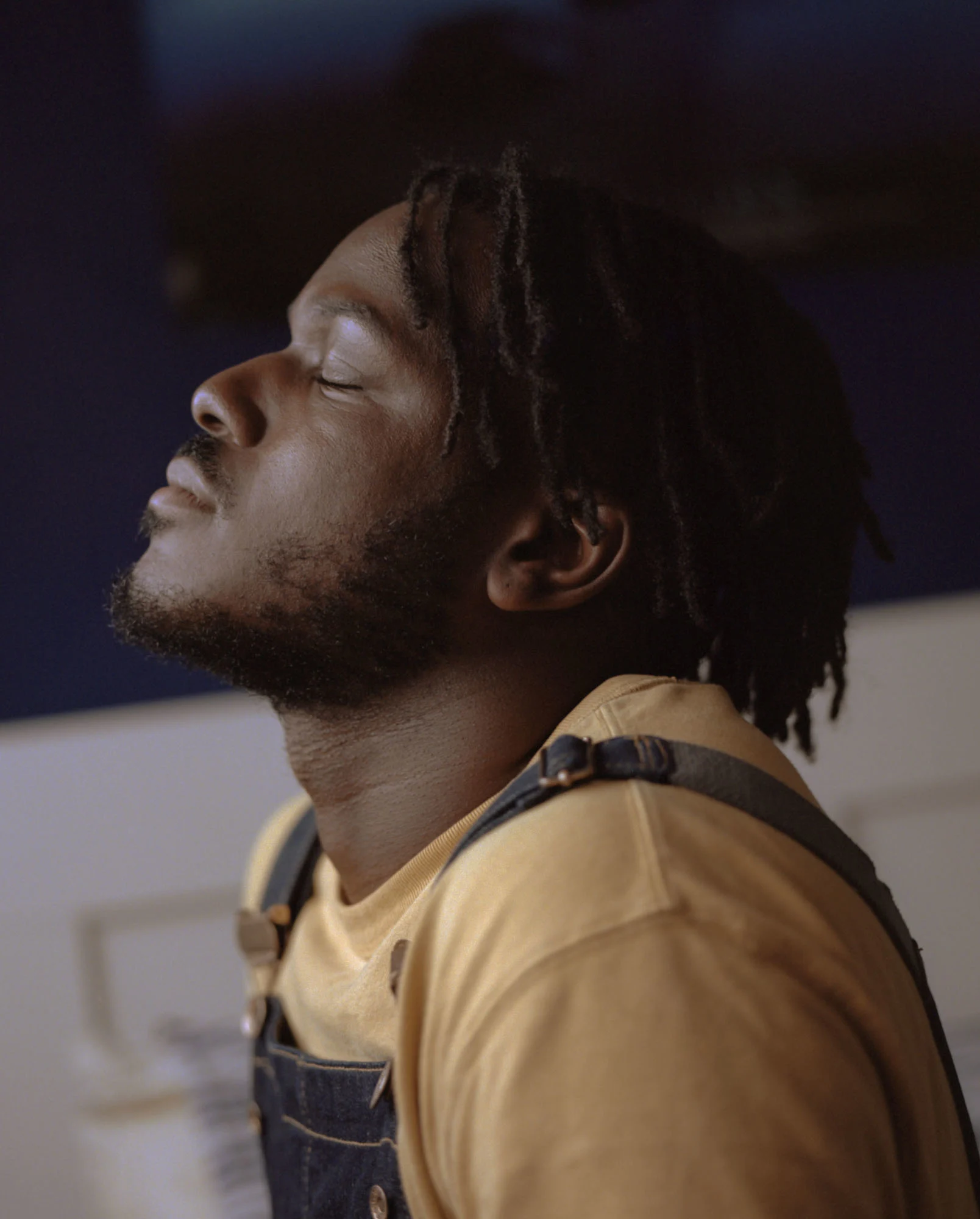
Growing out his hair, which he now wears in locs, has offered him more than just the literal coils on his head. “[When it grew out] and I was able to initially get styles I got gel twists…In a strange way, I felt more connected to my culture [and Blackness], all because I was able to present with a natural Black hairstyle, which I haven't done before, you know?” he says.
For me, the last 18 months of growing my hair has proved transformative. It’s been a time of internet forums scoured and Amazon reviews read, of trial and error, of tips and tricks gleaned from my sisters, of YouTube videos watched. That which was once a source of regimented conformity and perhaps even embarrassment, has become one of pride and euphoria. Every spray, every oil, every centimeter of growth, every moment of frustration, confusion and learning has amalgamated into one of the most meaningful and fulfilling decisions I have ever made.
A life without hair on one‘s head might seem a small and frivolous deprivation, but it is one with a storm of consequences for how we model and embody our aesthetic and authenticity.
My hair journey has been the reclamation of a prize that, for years, I had no idea I was being denied. At this stage of life, I thought I was largely done learning about the essential things my body could do and be. Growing my hair over lockdown fundamentally challenged this notion.
In recent years, driven by superstar rappers like the late Pop Smoke and A$AP Rocky, there has been a noticeable uptick in men opting to wear their hair in increasingly popular and increasingly braided styles. Meanwhile, Lil Nas X, Tyler, the Creator, and Anderson .Paak have taken to sporting wigs; and dreadlocks, once viewed as unprofessional (and still viewed with unwarranted suspicion and prejudice by wider white society), have been embraced by Future, Jay Z, J Cole and Lil Wayne. In Jay Z's case, his embrace of locs has paralleled his musical journey, as he recenters Blackness and African identity, and explores how they might interface with purpose, family and legacy.

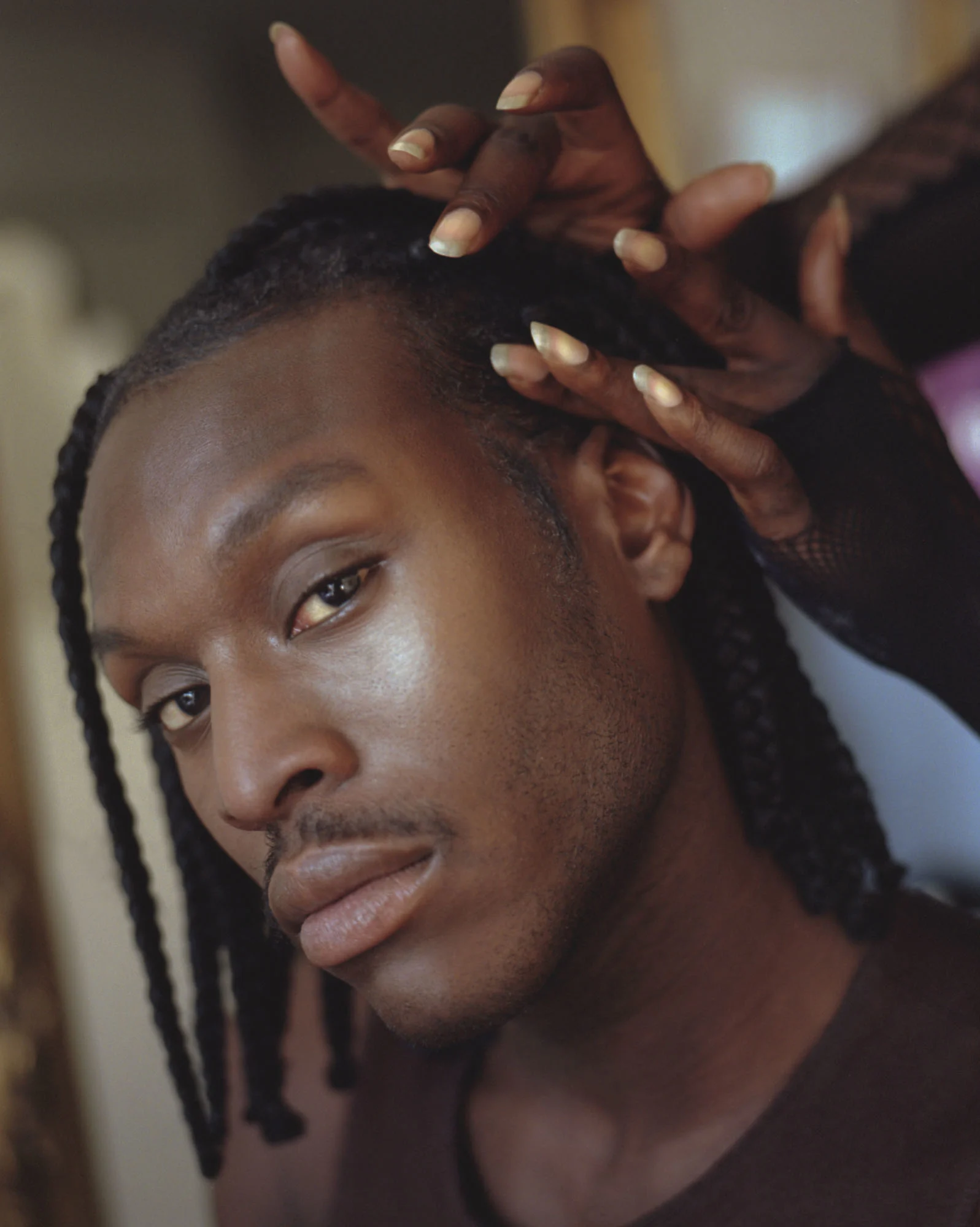
Among the Black men I speak to who have embraced their hair growth, the overwhelming sentiment is one of joyous transformation. “I feel like it's been extremely empowering,” Phil says of his lockdown growth. “I feel like I know a lot more about care, about hairstyles and hair texture, about my own hair.”
The most beautiful lesson Isaac's hair journey has taught him? “It's probably realizing the true versatility of African hair types—it can do everything…You can express yourself in just every way possible.”
For Isaac, it’s been a joy to see Black men around him embrace their hair in a way he felt there was little room for him to. “The most beautiful thing to me is just seeing, like Black boys see hair expression away from a set of clippers as a possibility. And I think that is very powerful.”


